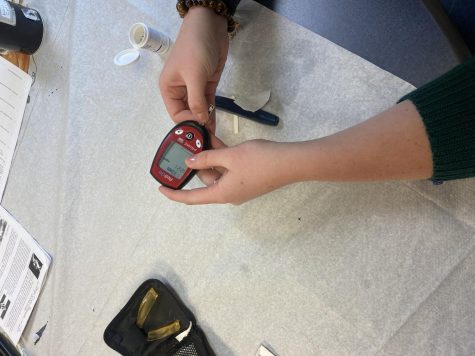The stigma of depression
Imagine waking up every morning feeling sick and afraid; unable to deny the terrifying ache you feel deep inside. You can hardly bring yourself to rise from the bed and go out in the world. Why? Because while the sun may be shining, all you see is bleak, omnipresent grayness. The music of life is all around, but you can hear nothing over the deafening screams of your own mind. When you’re standing in a crowded place, you feel like a lonely, unfinished painting on a wall of colorful and vibrant masterpieces.
Imagine, even in the earliest moments of the day, that your mind feels exhausted; plagued by the repetitive voices of sadness and desperation. You find yourself asking over and over: “Why do I feel this way? What’s wrong with me? Why does nothing make me happy anymore?” Imagine that no matter what you do, or how hard you try to suppress the way you feel, silence your mind, and make yourself happy, you can’t. Imagine that your mind, body, and soul are on a fiery battle ground, waging a war against each other that never ends; and the worst part is, you don’t know how things got that way, or what you can do to make it stop. For over 20% of teenagers in America, horrors such as these are not imagination. They are a cold and severe reality.
In our society, the stigma behind depression is very dispiriting. Many teenagers lack in understand of mental illnesses such as depression, or the impact it has. This in turn has a devastating effect on those who suffer, causing them to feel shame in what they are experiencing. “I think people look at depression and say ‘you’re a teenager and you’re just looking for attention’. People don’t take it seriously, they think it’s just an excuse,” said junior Grace Carl.
The assumption that depression is ‘just an excuse’ only increases the suffering and symptoms. It causes people to be ashamed of the way they are feeling, and shy away from speaking up and receiving the help they need. “Being a teenager is an awkward time in life anyway, which causes a lot of people to question themselves and the way they feel. They ask themselves things like ‘Would somebody think it’s silly that I feel this way? Would they laugh at me? I want to fit in, I don’t want to seem different. If people hear I have these issues, they won’t want to be around me’,” said psychologist John Guethlein.
People think depression is like a bruise. Like in time it’ll just go away. But in reality, it doesn’t.”
— Aaliyah Polanco
Considering the progressive society we live in, knowledge of mental illness is very limited. “The most hurtful thing someone could say about depression is that it doesn’t exist. I’ve heard people claim that mental illnesses completely don’t exist,” said senior Aaliyah Polanco. In our society, it is perfectly normal for someone to seek treatment when they are physically injured or don’t feel well, but when it comes to mental health things are much more questionable. “It’s common for teenagers to refrain from seeking treatment, saying to themselves ‘My parents are gonna think I’m crazy; my friends are gonna think I’m whacked out,” said Guethlein. “I was definitely afraid people would think I was crazy,” said Polanco. The consequences of this mentality and resistance to treatment are incredibly severe.
Teenagers suffering from depression often try to convince themselves that they can heal on their own. But without seeking real help, things will not get better. “Keeping things in for too long will cause you to feel like there’s no help or no way out. There always is, but sometimes people’s minds get too closed off and they can’t see that. Grades may start falling, you may start not wanting to hang out with your friends or do other things you’d usually enjoy doing. Sometimes, what’s going on emotionally may even start to come out by way of physical illness. Trying to suppress feelings of depression will only cause symptoms to worsen, sometimes even to the extreme point of suicide,” said Guethlein. “I kept my struggles in for so long because I don’t like having attention brought to me. I don’t want people’s pity. I wasn’t wanting help. I thought I could deal with it on my own, but 2 ½ years later I realized I was still the same. I didn’t want to live that way for the rest of my life. I would still laugh and have happy moments, but then I’d go home and feel empty again. Eventually, it came to a point where I just realized ‘I can’t do this on my own,” said Carl.
“Depression isn’t easy to deal with. There are days I can’t even get out of bed. People truly don’t understand the toll it can take on a person,” said Polanco. It’s very common to hear people say: “That person has a good life. What do they have to be depressed about?” For this reason, it’s vital that people understand depression and other mental illnesses are not a choice. If someone is genuinely depressed, they are not trying to use their sadness to gain attention. “It may seem like someone should be happy, but you never know what’s going on within their home, their family, or just themselves. Everyone tends to deal with different forms of pressure differently” said Carl. Those who suffer want nothing more than to smile easily again and feel okay. No one should ever face judgement for the way they feel. Being mentally ill and having to seek help does not make a person crazy.
In fact, if you suspect that you or a loved one is suffering from depression, the best thing to do is seek immediate help. “It’s important for parents and friends to react calmly when they’re told. Don’t show pity, just talk about it and help them get the help they need,” Carl said. “Teenagers need to be open to getting help. If you identify depressed feelings in yourself, it’s so important to seek treatment. There’s freedom in therapy and talking to a stranger because there’s no judgment there. It’s also important to address why you’re depressed,” said Guethlein. Polanco’s final message is this, “To the people who are struggling: you need to talk about it before you’re in too deep.”



Steve Rose • Jan 13, 2016 at 4:54 PM
Congratulations on this piece and this new online publication. As a student journalist at NPHS, a journalism teacher, and an x-journalist, it warms my heart that my alma mater is doing this!
Dr. Steve Rose
class of 1970